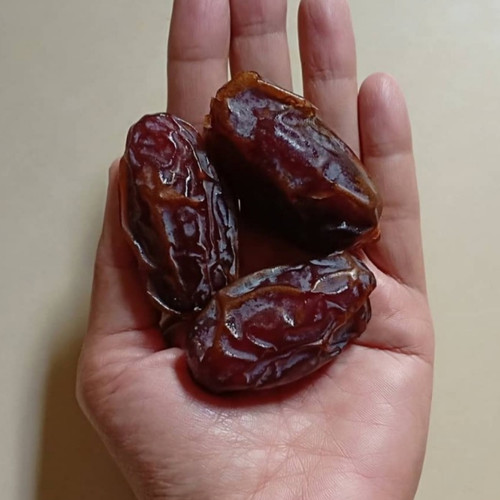Malaysian Dates: Quality Control & Medjool Prices

Introduction: Understanding the Significance of Regulations and Certifications
In the dates fruit industry, ensuring the quality, safety, and authenticity of products is of utmost importance. This is particularly relevant when considering Harga Kurma Medjool, which is known for its premium quality and taste. In Malaysia, specific regulations and certifications provide guidelines and standards for dates fruit suppliers to adhere to. In this blog post, we will delve into the regulations and certifications for dates fruit suppliers in Malaysia, with a focus on Harga Kurma Medjool, exploring their importance and impact on the industry.
The Role of Regulations in the Dates Fruit Industry
Regulations play a crucial role in ensuring that dates fruit suppliers in Malaysia comply with industry standards and meet consumer expectations. These regulations are designed to protect consumer health and safety, facilitate fair trade practices, and maintain the overall integrity of the industry. Here are some key aspects of regulations for dates fruit suppliers:
1. Food Safety Standards
Food safety regulations outline the specific requirements for handling, processing, and distributing dates fruit in Malaysia. This includes guidelines for proper storage conditions, hygiene practices, and quality control measures to prevent contamination and ensure the safety of consumers.
2. Labeling and Packaging Requirements
Regulations also govern the labeling and packaging of dates fruit products. Suppliers must comply with guidelines regarding accurate product information, nutritional labeling, allergen declarations, and proper packaging materials to provide transparent and informative packaging to consumers.
3. Import and Export Regulations
For dates fruit suppliers involved in import and export activities, there are specific regulations governing the cross-border trade of dates. These regulations ensure compliance with customs procedures, phytosanitary requirements, and international trade agreements to facilitate smooth and legal trade operations.
Certifications for Dates Fruit Suppliers in Malaysia
Certifications provide a recognized standard of quality and compliance for dates fruit suppliers in Malaysia. They serve as indicators of trust, assuring consumers that the products meet specific criteria and have undergone rigorous inspections. Here are some prominent certifications applicable to dates fruit suppliers:
1. Good Agricultural Practices (GAP)
The Good Agricultural Practices (GAP) certification focuses on sustainable farming practices, emphasizing environmental responsibility, worker safety, and efficient resource management. Dates fruit suppliers with GAP certification demonstrate their commitment to producing high-quality products while minimizing the environmental impact of their operations.
2. Hazard Analysis and Critical Control Points (HACCP)
HACCP certification is essential for dates fruit suppliers involved in processing and manufacturing activities. It ensures that suppliers have implemented effective food safety management systems, identified critical control points, and established preventive measures to eliminate or minimize potential hazards throughout the production process.
3. Halal Certification
Halal certification is crucial for dates fruit suppliers targeting Muslim consumers, as it certifies that the products comply with Islamic dietary laws. This certification assures consumers that the dates are produced, processed, and handled according to strict halal standards, making them suitable for consumption by Muslims.
4. ISO 22000
ISO 22000 is an internationally recognized certification that focuses on food safety management systems. Dates fruit suppliers with ISO 22000 certification demonstrate their commitment to ensuring the safety and quality of their products through systematic approaches to hazard identification, control, and continuous improvement.
Importance of Regulations and Certifications for Dates Fruit Suppliers
The regulations and certifications applicable to dates fruit suppliers in Malaysia, including Harga Kurma Medjool, play a vital role in the industry. Here are some key reasons why they are important:
1. Consumer Confidence and Trust
Regulations and certifications provide consumers with confidence in the quality, safety, and authenticity of dates fruit products. Compliance with regulations and obtaining relevant certifications helps suppliers build trust and establish a positive reputation among consumers.
2. Quality Assurance and Consistency
By adhering to regulations and obtaining certifications, dates fruit suppliers ensure the consistent quality and safety of their products. Compliance with industry standards and best practices helps maintain product consistency, minimizes the risk of contamination or adulteration, and ensures that consumers receive dates fruit of the highest quality.
3. Market Access and Expansion
Regulatory compliance and certifications are often prerequisites for market access, both domestically and internationally. Suppliers with the necessary certifications can enter new markets, cater to specific consumer segments, and expand their business opportunities.
4. Differentiation and Competitive Advantage
Obtaining certifications sets dates fruit suppliers apart from non-certified competitors. Certifications such as Harga Kurma Medjool, GAP, HACCP, Halal, and ISO 22000 demonstrate a commitment to quality, safety, and compliance, giving suppliers a competitive edge in the market.
Conclusion
In the dates fruit industry in Malaysia, adhering to regulations and obtaining certifications is essential for dates fruit suppliers, including those involved in Harga Kurma Medjool. Regulations ensure compliance with food safety standards, labeling requirements, and import/export procedures. Certifications provide assurance of quality, safety, and adherence to specific criteria, boosting consumer confidence and facilitating market access. By prioritizing regulatory compliance and obtaining relevant certifications, dates fruit suppliers can uphold the integrity of the industry, meet consumer expectations, and thrive in a competitive market.
Key Highlights of the Blog:
– Regulations for dates fruit suppliers in Malaysia cover food safety standards, labeling and packaging requirements, and import/export regulations.
– Certifications such as GAP, HACCP, Halal, and ISO 22000 are important for dates fruit suppliers to demonstrate compliance and quality assurance.
– Regulations and certifications enhance consumer confidence, ensure product consistency and quality, and provide market access and competitive advantage.
– Adhering to regulations and obtaining certifications is crucial for Harga Kurma Medjool suppliers to maintain industry integrity and meet consumer expectations.